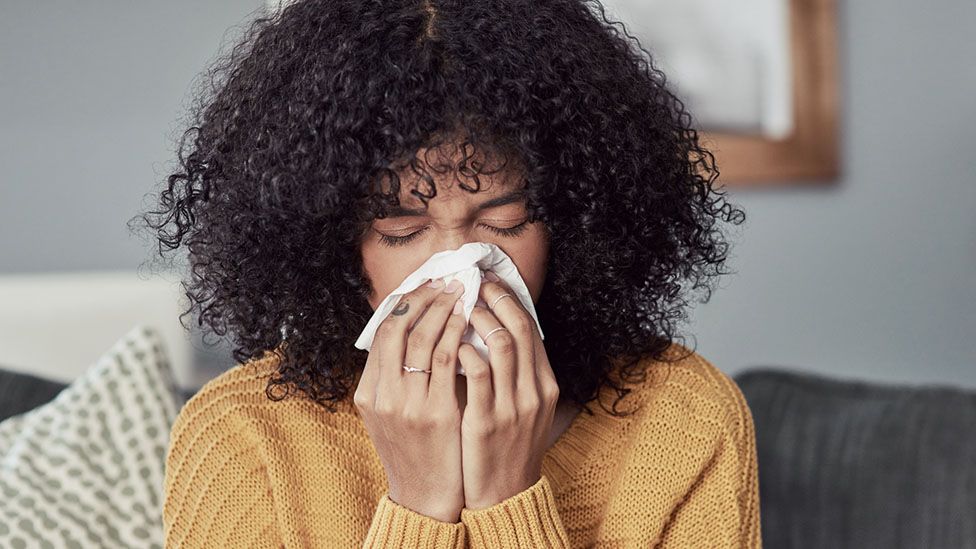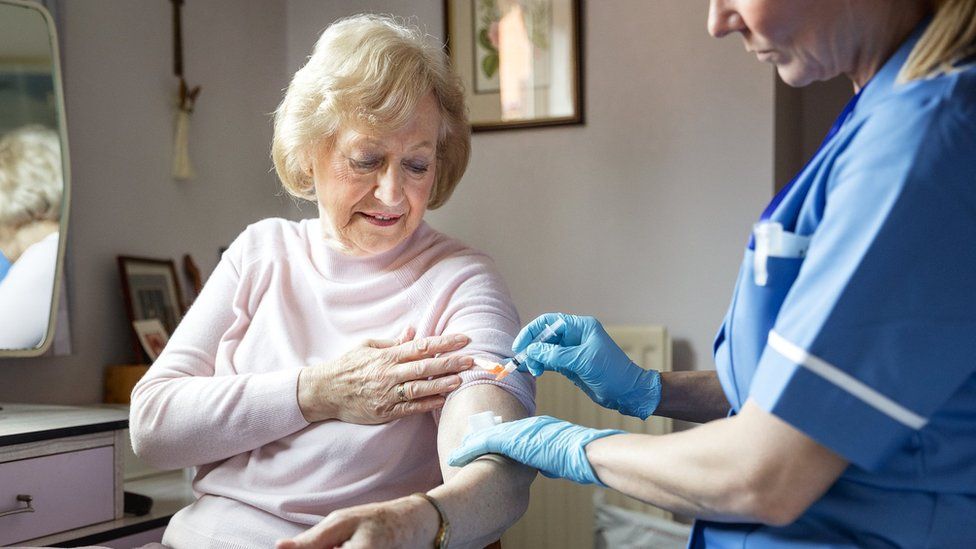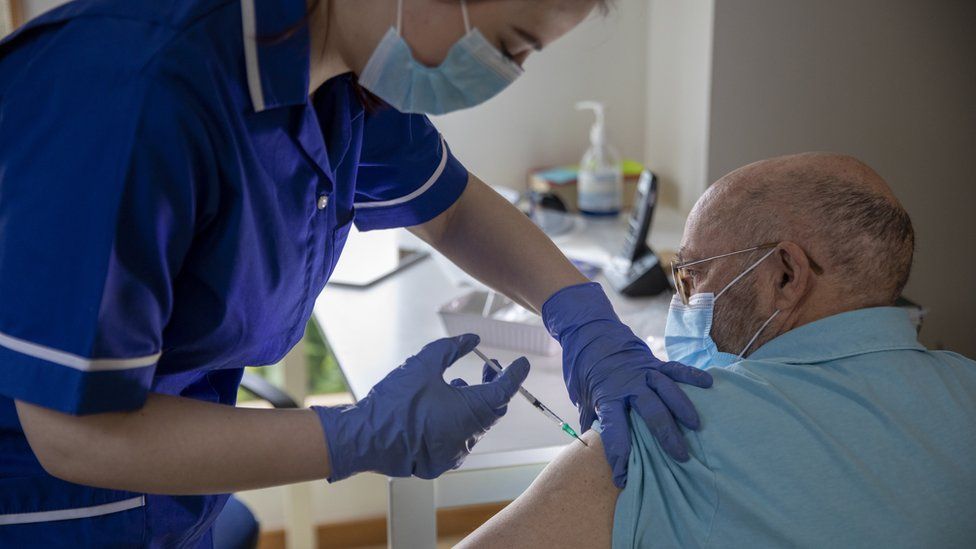
With plans for Covid-19 booster jabs to be given in Wales in September, your thoughts maybe be turning to the flu vaccine - which is usually given at about that time.
Last year, people were urged to get the flu vaccine to reduce pressure on the NHS, already strained by the pandemic, and the age of eligibility to get it for free was lowered from 65 to 50.
But how will it work in 2021?
Who is being advised to get a flu jab?
People aged 50 and over were offered the flu vaccine for free last year, along with those aged between six months and 49 with a long-term health condition.
These include chest problems, kidney or liver disease and diabetes.
Also among those who should get it are adults with a body mass index of more than 40, pregnant women, care home staff, residents and carers, NHS staff and prison inmates.
Children aged two or three and those in primary school are also given a free vaccine.
How many people normally get a flu jab?
Approximately 1.5 million people in 2020-2021 were eligible for a free flu vaccine in Wales, and people not eligible can pay to receive a jab.
The flu vaccine uptake in Wales last year was the highest on record, with 76.5% of over-65s receiving the jab.
What is the flu rate in Wales at the moment?
Very low. It is circulating, but not much.
No-one tested positive for flu in Wales last week, though the rate is normally low at this time of year.
Only 18 cases were recorded over the winter in Wales, a record drop from 1,657 in the previous winter.
Are more cases expected this year?
Higher rates of all respiratory illness, including flu, are expected due to the lack of circulation last winter.
Catherine Moore, a consultant virologist at Public Health Wales said in March this flu season could be worse as a result of the lack of transmission last winter.
"We've completely missed a season, so the virus might have moved on a little further more than our immune system will remember.
"There is a potential there that we could being seeing slightly more severe flu than we would normally expect to see," she said.
Will people be getting Covid boosters and flu jabs together?
Early evidence supports giving Covid and flu vaccines at the same time.
This will be confirmed when the Joint Committee on Vaccination and Immunisation issues its advice.
Flu cases were suppressed last year. Why?
Globally, Covid restrictions such as hygiene measures, face masks and social distancing prevented the spread of other pathogens including flu.
Over a five-year average, flu has been the third-highest cause of death in Wales during winter.
But by February 2021 flu and pneumonia had fallen to the ninth-highest causes of death, 73.2% lower than the five-year average.
Nathan Sznerch, a GP in Wrexham, said Covid measures had made people more aware of hygiene measures and keeping a distance.
"We've certainly seen a reduction in the amount of people contacting us.
"I think people are far more aware of the importance of hand hygiene, and wearing masks," he said.
Why should we be worried about flu?
It can be very serious. It is caused by a virus and can lead to illnesses like bronchitis and pneumonia, which may need hospital treatment.
In a normal winter, thousands of people die from flu-related illnesses in the UK. There are outbreaks every winter.

Where do I get it?
If you are an adult in an at-risk group, pregnant, or aged over 50, you can get your it at your GP surgery or some community pharmacies.
If you work in health or social care, your employer should be able to advise you.
Care home staff and domiciliary carers should talk to their community pharmacy about it.
Primary school children will be given it as a nasal spray at school, and those aged between two and three can receive it for free at a GP surgery.
The flu vaccines are normally rolled out from early to mid-September.

What are the side effects of the flu vaccine?
Some people get a slight temperature, feel tired, have a headache, or aching muscles for a day or two. Your arm may be a bit sore.
Other side effects are rare. Most people feel well.
Who should not get a flu vaccine?
People who have previously had a serious allergic reaction to a flu vaccine should not have that vaccine again.
If you have a serious egg allergy you should tell the nurse or doctor. You can still have a jab but special arrangements may be have to be made.
If you are unwell with a high temperature, wait until you feel better.
A cold or other minor illness is not a reason to delay, Public Health Wales says.
https://news.google.com/__i/rss/rd/articles/CBMiKmh0dHBzOi8vd3d3LmJiYy5jb20vbmV3cy91ay13YWxlcy01NzY4MDA5M9IBLmh0dHBzOi8vd3d3LmJiYy5jb20vbmV3cy91ay13YWxlcy01NzY4MDA5My5hbXA?oc=5
2021-07-02 20:12:36Z
52781710554891
Bagikan Berita Ini














0 Response to "Covid booster and flu vaccines in Wales: What you need to know - BBC News"
Post a Comment